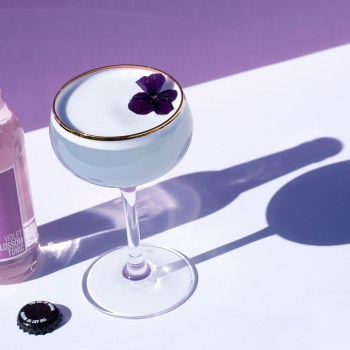Sustainability is a key trend, not just in our industry but around the world, that is shaping purchasing decisions by owners and operators as well as consumers.
Just in September leading industry market research and analysis organisation, IWSR, identified ‘Health and Ethical Consumption’, of which sustainability is a part, as one of the key macro trends that is shaping our industry.
Health and Ethical Consumption is a trend that was coming on strongly in Australia prior to the pandemic and IWSR expects the increased focus on personal health and wellbeing, as well as impact choices on the environment and society at large will continue.
IWSR said: “Here and elsewhere, broad consumer-and state-led shifts toward health and/or sustainability are likely to continue in the wake of the Covid-19 pandemic.
“This will have implications for the whole beverage alcohol industry, from production and packaging to distribution and administration.”
Across the bar industry there is a growing understanding around our environmental impact and footprint. As an industry we need to think more about many of the materials we use as the production of plastic creates greenhouse gas emissions and in addition plastics release toxic chemicals as it degrades, polluting our land and our seas.
This need to think more clearly about our actions and our practices is bringing about a shift in consumer actions as well. Consumers now look for products which are more sustainable, more environmentally friendly and more ethically produced and packaged.
This has seen companies like ecoSPIRITS growing through its closed-loop distribution system using ecoTOTES – a fully-reusable, refillable, tamper-proof and shock-proof 4.5L glass vessel to replace the standard 6-bottle case of spirits.
ecoSPIRITS says that 2020, will see the world produce 40 billion single-use glass spirit bottles, generating 22 million tons of carbon emissions.
A growing micro-trend within the environmental movement is the zero waste movement which is geared around the concept of sending less waste to landfill, so means things like fewer garnishes, recycling by-products and zero packaging.
The IWSR recently spoke to Rich Wood author of ‘The Cocktail Guy’ and head bartender at the London-based cocktail bar Scout, who integrates the zero waste philosophy into his cocktail development.
“We look at every ingredient, whether it is a garnish, a distillate or a preparation such as a cordial and ask whether we are getting the most flavour and utility out it,” Wood told IWSR.
“A lot of restaurants and bars discard so much waste that is mindboggling,” Wood said. The challenge over wastage has increased with movements toward more fresh fruit. Scout goes so far as to ferment leftover cocktail ingredients for several weeks to create their ‘wasted wines’.
“It is very difficult to be 100 per cent zero-waste, but we are. At the very least we are conscientious about every ingredient that we go into to the point where we produce less commercial waste than domestic waste.”
And while there are strong ethical reasons behind the movement, Wood told IWSR that there was also a cost benefit to the bar.
“As a business owner, we’re trying to minimise the amount of costs to the business as much as possible. Our overall costs are massively reduced through our zero-waste approach.”
The simple fact is everyone knows they should be doing what they can to help the environment, no matter how small. Running a business in the current COVID-climate we are experiencing arguably gives you a reason not to put sustainability and environmental concerns as a priority.
However by thinking differently about how you operate, some of your purchasing decisions and how some of your waste could be used you can do your bit for the environment, while still keeping costs at a minimum for your business and not impacting on the quality of the spirits and cocktails you are serving.



